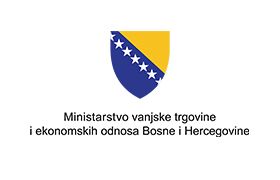
Happy Holidays!
This holiday season, we’re happy to share a video with some of the best moments from 2025. Let’s celebrate what we’ve achieved together and keep working toward a greener, more sustainable future in Bosnia and Herzegovina!
Read more
Building the foundation for sustainable waste management in Bosnia and Herzegovina
Sustainable waste management is one of the priority areas in the BiH SuTra project. On 16 December, representatives from municipalities and cities gathered in Banovići for a dedicated workshop about waste composition. This event marked an important step towards developing a harmonised and practical approach for analysing household waste in BiH.
Read more
Building the future of wastewater management in BiH: Lessons from Sweden
Representatives of local self-government units involved in the BiH SuTra project gathered in Breza on 2 December 2025 for the workshop “Enhancing Wastewater Management within Municipal and City Sustainability Transition Plans – Lessons from Sweden.”
Read more
Wastewater reimagined: Building climate-smart & circular systems in BiH
On the 2nd of December 2025 leading Swedish and local expertise convened a workshop in Breza to help municipalities, cities and utilities in Bosnia and Herzegovina accelerate sustainable wastewater management as part of the implementation of their sustainability transition plans.
Read more
Shift towards attractive and sustainable urban transport in cities
Access to sustainable and attractive public transport is one of the key components for liveable cities and towns. It can make cities better places to live and work, driving trade, economic growth, and jobs. Sustainability is not only about reducing pollution, but it is also a tool that can promote social equity and safety through accessible and safe transportation options.
Read more
BiH SuTra project launches International Advisory Board
The BiH SuTra project marked an important milestone with the successful kick-off meeting of its newly established International Advisory Board (IAB). Bringing together leading experts from European institutions, international networks, and academia, the IAB will play a key role in supporting the project’s strategic direction and ensuring alignment with European best practices in sustainable and just transition.
Read more Banovici
Banovici
 Breza
Breza
 Gacko
Gacko
 Gradiška
Gradiška
 Kakanj
Kakanj
 Ugljevik
Ugljevik
 Živinice
Živinice
 Ministarstvo vanjske trgovine i ekonomskih odnosa BiH
Ministarstvo vanjske trgovine i ekonomskih odnosa BiH
 Stockholm Environment Institute
Stockholm Environment Institute
 Sweden
Sweden